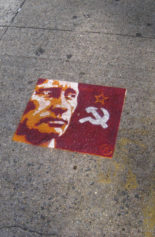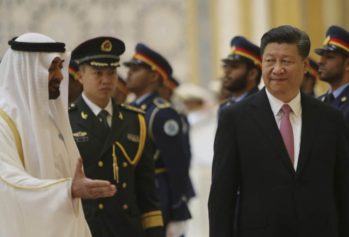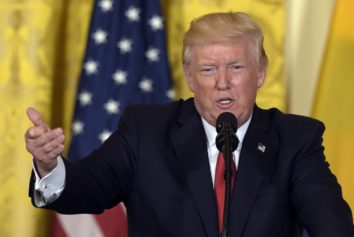In a symbolic move that could have far-reaching implications, Russia and China made a bold statement that they are ready to stop the domination of the U.S. dollar in international markets. They announced a deal Tuesday to bypass the dollar and pay each other in domestic currencies.
The move was made by Russia’s second-biggest financial institution, VTB, and the Bank of China and signed in the presence of Chinese President Xi Jinping and Russian President Vladimir Putin, who is on a visit to Shanghai.
In addition, the two nations announced a massive natural gas deal they’ve been pursuing for the last decade that gives Russia a market for its energy imports in China, helping it to break free from the European market it heavily depends on to buy its energy.
“Our countries have done a huge job to reach a new historic landmark,” Putin said Tuesday, pointing out the $100 billion in annual trade that has been achieved between the two countries.
The deal between the banks will be a step toward easing the international demand for the dollar, which has long served as a safe and reliable reserve currency in international transactions. Many observers around the world believe this has allowed the U.S. to borrow almost unlimited cash and spend well beyond its means, giving the U.S. an outsize influence on world affairs.
But that dominance is beginning to change as the so-called BRICS countries — Brazil, Russia, India, China and South Africa, five major emerging economies — are coming together to diminish their dependence on the dollar and to try to reshape the world financial and geopolitical order.
“China sees the dominance of the dollar in international trade transactions as a remnant of American global dominance, which they hope to overthrow in the years ahead,” Michael Klare, a professor of peace and world security studies at Hampshire College, told Al Jazeera America. “This is a small step in that direction, to reduce the primacy of the dollar in international trade.”
Still, the bank deal is considered a symbolic step, very small potatoes in the whole scheme of global economic affairs.
Liza Ermolenko, an emerging markets economist at Capital Economics in London, told Al Jazeera the deal was still “a very small one, in the grand scale of things.”
She said it wouldn’t change Russia’s reliance on the dollar “overnight,” noting that most of Russia’s export contracts in the oil and gas markets are still priced in dollars.
Many view the move as Putin’s response to the economic sanctions levied against Russia in the fallout over Crimea and Ukraine, but these are moves the countries have been contemplating for years.
“Breaking the dominance of the U.S. dollar in international trade between the BRICS is something that the group has been talking about for some time,” said Chris Weafer, a founding partner of Macro-Advisory, a consultancy in Moscow. “The Ukraine crisis and the threats voiced by the U.S. administration may well provide the catalyst for that to start happening.”
“This is a marriage of mutual strategic interests, not a marriage of love,” Klare said. “China wants energy and weapons from Russia, and Russia wants diplomatic backing and cash. It’s a quid pro quo.”
“We don’t want to push this too far and see it as a formation of a new, global anti-American bloc that is starting a new Cold War,” he added. “This is market-driven more than it’s political.”


